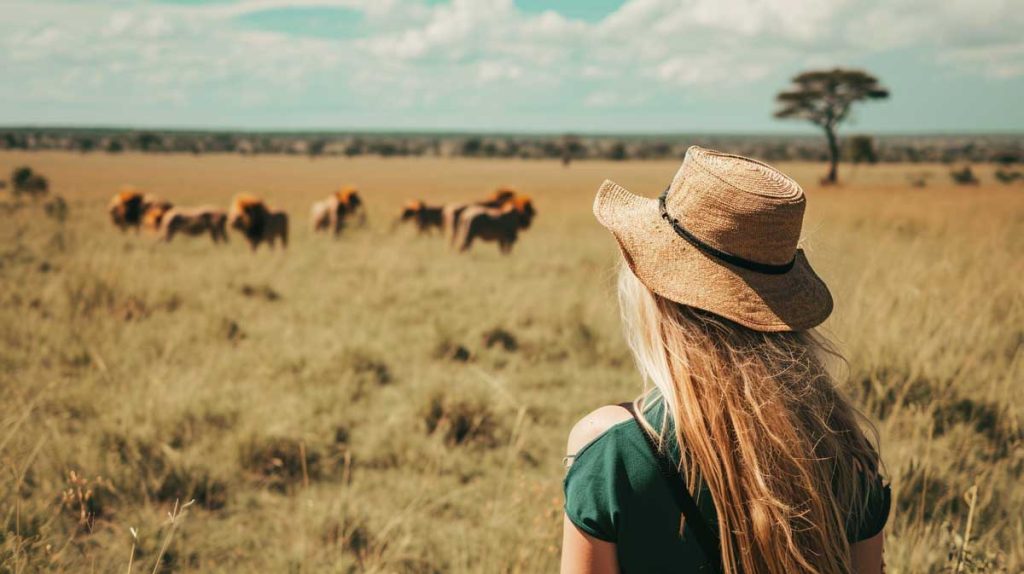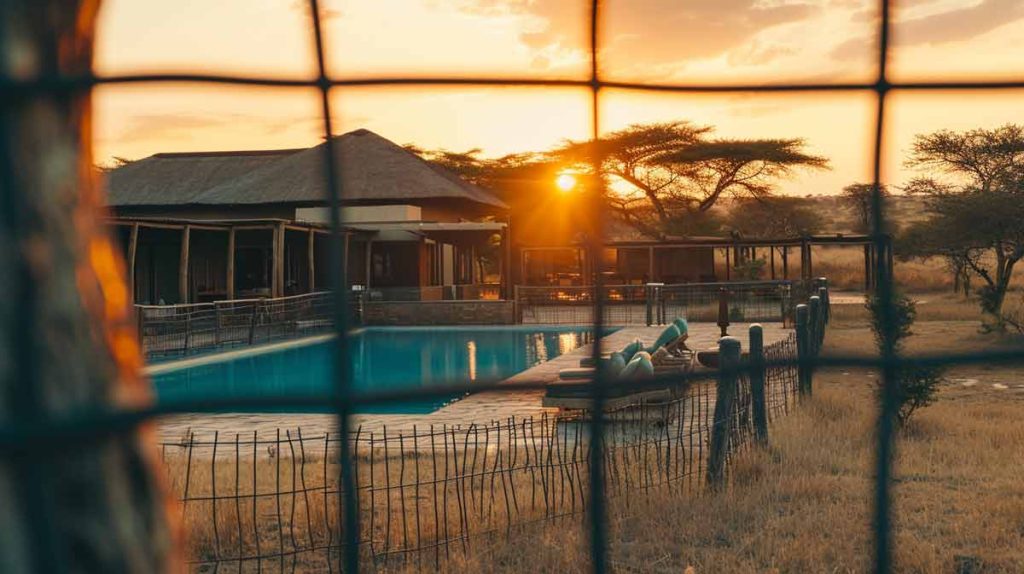Are African Safaris Safe: Tips and Facts for a Safe Adventure
An African safari can be an exhilarating and unforgettable experience, offering the chance to witness majestic wildlife in their natural habitat. However, many travellers often question the safety of such an adventure. Understanding the potential risks and equipping oneself with the proper knowledge and precautions are essential to ensure a safe and enjoyable safari experience in Africa.

Is it Safe to Go on an African Safari?
Before setting off on an African safari, it’s crucial to comprehend the potential wildlife risks you may encounter. While game drives and walking safaris provide incredible opportunities to observe animals such as lions, elephants, cheetahs, and leopards in their natural environment, they must remember that these are wild animals and should be treated cautiously and respectfully.
Following safe safari practices is paramount for a secure journey. Whether in Tanzania, Kenya, Botswana or Zimbabwe, always adhere to the instructions of experienced safari guides. They are well-versed in navigating the African wilderness and can ensure your safety during encounters with wildlife.
Choosing between a guided tour and a self-drive adventure is important when considering a safari. Guided safaris often provide a safer option as the trained guides are equipped to handle any potential dangers, enhancing the overall safety of the journey.
What Are the Safety Tips for African Safaris?
Interacting with wild animals is undoubtedly one of the most thrilling aspects of an African safari. To ensure everyone’s safety, always maintain a safe distance from the animals and never exit the safari vehicle unless instructed by the guide. These precautions are essential when encountering potentially dangerous animals like lions or elephants.
Choosing safe accommodations is imperative when planning an African safari. Opt for lodges and camps that prioritize guest safety and are in secure areas. This will minimize the risks of wildlife encounters and provide peace of mind throughout the journey.
While navigating potential danger zones, you must stay vigilant and follow your guide’s instructions. This includes understanding the behaviours of animals and avoiding any actions that may provoke them. You can significantly reduce the likelihood of dangerous encounters by respecting the animals’ territory and adhering to safety protocols.
What to Do in Case of Wildlife Encounters?
In predatory animal encounters, such as lions or leopards, it’s crucial to remain calm and follow the guide’s directions. Avoid making sudden movements or direct eye contact with the animals, as this may be perceived as a threat. By staying composed and trusting your guide’s expertise, you can effectively navigate such encounters while prioritizing safety.
Similarly, when encountering elephant herds, it’s crucial to maintain a respectful distance and avoid any sudden or startling actions. Elephants are brilliant and protective animals, and respecting their space is key to ensuring a safe and harmonious encounter.
Be cautious of potential hippopotamus encounters near water sources, such as rivers or lakes. Despite their seemingly docile appearance, hippos can be aggressive and territorial. Always adhere to the guide’s instructions and avoid approaching or provoking these animals to prevent potential confrontations.
Is Traveling to Africa Alone Safe?
Embarking alone on an African safari raises questions about safety and the potential risks. While solo travels offer a sense of independence and exploration, opting for a guided tour is often safer. Guided safaris provide the expertise of knowledgeable guides adept at navigating the wilderness and ensuring the safety of all participants.
When travelling solo, incorporating safety measures into your itinerary is essential. This includes informing local authorities or safari operators about your itinerary and ensuring regular check-ins for added security. Solo travellers can enhance their safety during an African safari by taking proactive steps to stay safe and informed.
Understanding local safety precautions and respecting cultural and environmental norms are crucial for a safe and respectful journey. Being mindful of local customs and heeding the advice of experienced guides can contribute to a secure and enriching experience while travelling alone in Africa.
What Are the Safest African Safari Destinations?
Choosing the right destination is pivotal in ensuring a safe and enjoyable experience when considering an African safari. Several countries in East Africa, such as Tanzania, Kenya, and Uganda, offer top wildlife-safe destinations known for their diverse ecosystems and abundant wildlife.
Game drive locations within national parks and game reserves provide ample opportunities to observe wildlife while maintaining a safe distance. Countries like Botswana and South Africa also boast secure safari lodges within protected areas, offering a serene and secure base for exploring the surrounding wilderness.

By selecting secure safari lodges and prioritizing destinations renowned for their wildlife conservation efforts, travellers can stay safe and keep wildlife encounters respectful and harmonious. Prior research into the safest safari destinations can ensure a memorable and secure safari adventure for all participants.
